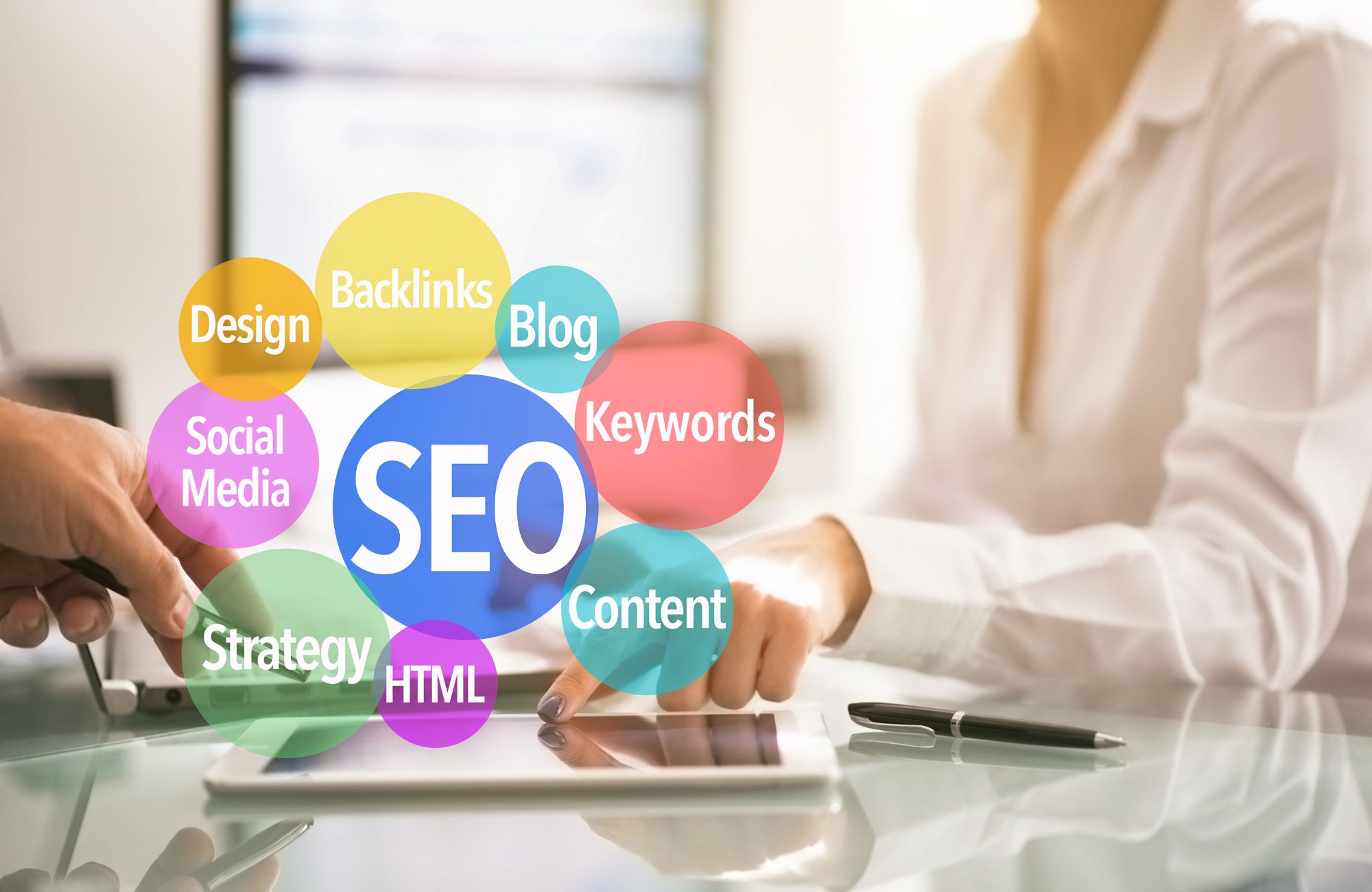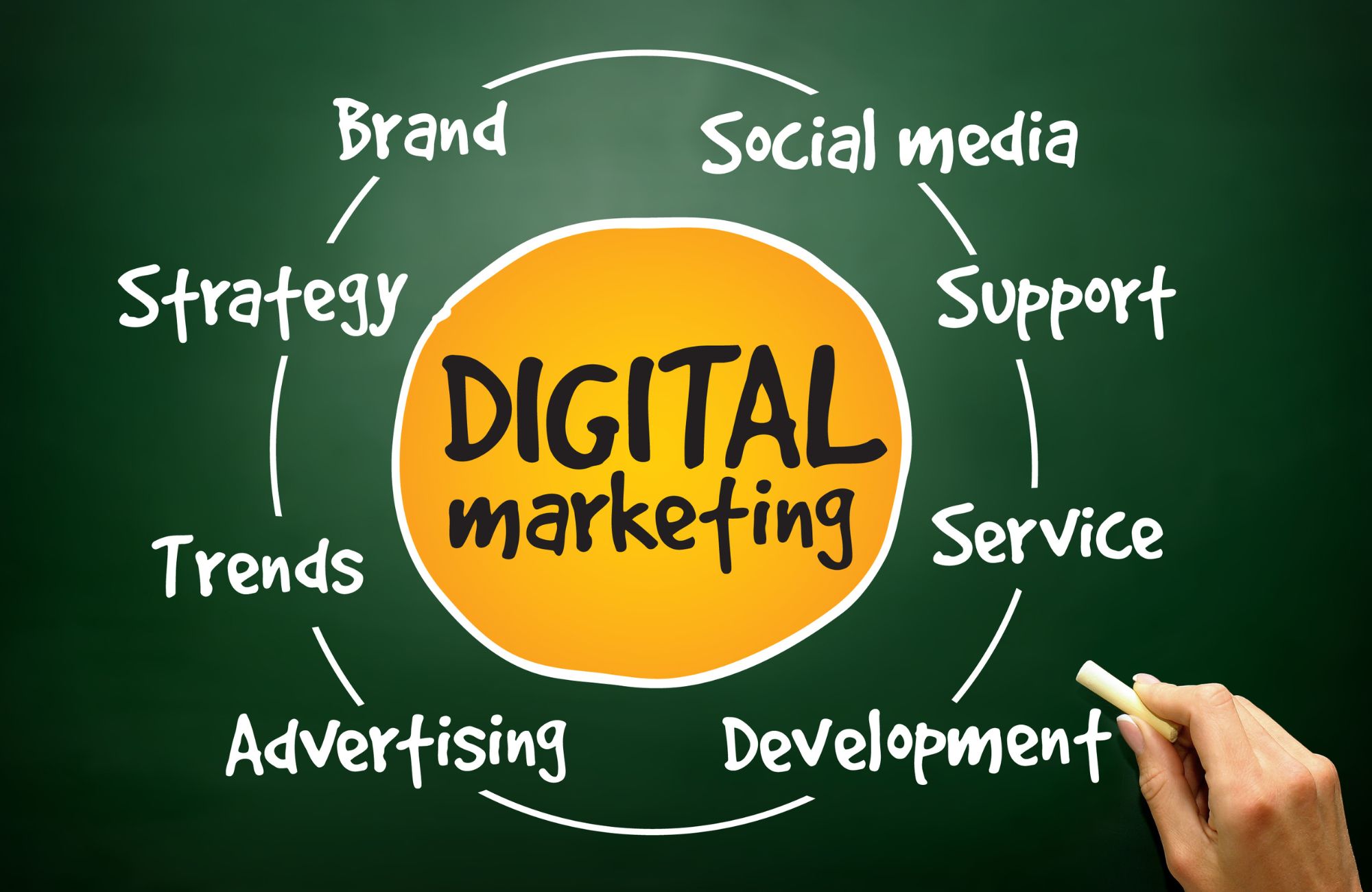Is Digital Marketing Legit?
Ever catch yourself wondering, Is Digital Marketing Legit? In today’s digital-first world, businesses face a critical question: Is digital marketing legit, or is it just a fad? There are so many tools, platforms, and strategies that say they’ll give you results that it’s no wonder business owners are skeptical.
Despite this, digital marketing has proven invaluable time and time again as traditional marketing methods continue to fade. Cost efficient and measurable results spring from digital marketing strategies such as search engine optimization (SEO), social media platforms and pay per click (PPC) campaigns that build trust in your audience and fuel long term growth. In this blog post, we will discuss how legitimate digital marketing is, dissect what actually makes it up and how businesses can employ digital marketing to amass a big online presence.
What is Digital Marketing?
Digital marketing is the promotion of products or services using digital technologies, mainly the internet, but also including mobile phones, display advertising and others. There’s a variety of tactics such as search engine optimization (SEO), content marketing, social media marketing, pay per click (PPC) advertising, email marketing and much more. Digital marketing aims to gain visibility and develop a presence on the Internet for your business that attracts, engages and converts those interested in your products or services.
If you talk a little about the benefits of digital marketing, then the main advantage of digital marketing would be its ability to target audiences specifically. As opposite to the conventional marketing strategies such as TV or print, digital marketing enables enterprises to target the people who is most likely to be interested in the products or services offered by them. With this targeted approach, your marketing efforts become more cost effective and time efficient.
In an online world where almost everyone has a digital presence it is not as though it is optional. For small businesses to big corporations, digital marketing is something is a must to be able to stay competitive. Digital marketing has a lot of tools no matter whether you want to build brand awareness, generate leads or boost sales.

The Role of Search Engine Optimization (SEO)
SEO is majorly important in your business’s online presence to boost your online presence attracting potential customers organically. But at the core of SEO, it’s simply about optimizing your website and content so Google will rank your website a little higher in search engine results. Your chances of being noticed by users when your site is put on the first page of the search results increase a lot, and more traffic to your site.
The best part of SEO is its long term effect. Pay per click (PPC) campaigns are fast, but SEO is a smart long term strategy that will help to organically earn the value you are looking to maximize. The more credibility and trust your site has in the eyes of customers, the higher up in the rankings you rank. So this trust is important as users are more likely to interact with businesses on the top of the SERP as they thought they were more authoritative and reliable.
The SEO part helps target particular keywords about your offerings so people who are actively looking for the things you provide, are reached. Not only does this targeted approach increase traffic, but they’re essentially making traffic of higher quality, because it’s more likely to convert when you’re able to get great specific traffic.
With SEO, businesses have the perfect opportunity to create a robust and long lasting online presence. This is a cheap strategy to establish trust with your audience, increase the visibility of your brand, and most importantly enhance organic search conversions. If you invest in SEO consistently, over time, you’ll be placed as a leader in your industry; it’ll lead to long term growth, in long term success.
Social Media Platforms and Their Influence
Today, social media platforms are essential tools for digital marketing strategies in the process of becoming an integral part of our interconnected world. Whether they are Facebook and Instagram, LinkedIn and TikTok, these platforms enable businesses to connect with their audience in a direct, authentic and interactive manner. Using social media power, we can get trust with our target audience, gaining brand awareness, and customer loyalty.
The biggest advantage of social media marketing is the opportunity that it provides to connect with potential customers on a personal level. Contrary to traditional advertising, which can seem one sided, social media platforms offer businesses a two way channel for communicating with users in real time. Through responding to comments, hosting live sessions, or sharing behind the scenes content, businesses can build a sense of community and engagement that deepen the customer relationship.
Social media also provides a cocktail of organic and paid advertising opportunities. Paid social ads, on the other hand, allow you to reach your target audience of demographics, interests, and behavior with money, whereas, organic content such as posts, stories, videos give you the ability to create a presence without the money. Combining organic and paid strategies makes sure the audience of the business is grown in a cost efficient manner while obtaining measurable results.
Many social media platforms, if managed well, can provide substantial return on investment (ROI). Posting valuable content regularly, engaging with followers, and using ad tools helps businesses stay visible in an increasingly crowded space. This presence will prove to be a great asset over time for building credibility and trust, both of which are crucial in convincing your followers to become devoted customers.
In a nutshell, social media platforms are fantastic, changeable elements of the digital marketing strategy. They can be used strategically to help businesses build their audience, build meaningful connections, and encourage short term engagement and longer term success when used properly.
The Power of Pay Per Click (PPC) Advertising
The best way to advertise a business online is with Pay Per Click (PPC) advertising, which allows businesses to be seen immediately in search results and social media platforms. PPC lets you show your ads to someone who’s actively searching for what you’re selling and you only pay when someone clicks on your ad. And this makes it a very cost effective solution since the money you spend in reaching a targeted audience rather than spending money to reach a general audience.
High flexibility is one of the key benefits that PPC offers. Whether you’re looking to make a sale, drive traffic to a landing page, or simply increase brand awareness, PPC campaigns can be adapted to suit your particular business goals. Each platform has its own targeting options such as location, interests, search history, and more — through these platforms like Google Ads, Facebook Ads, Instagram Ads, etc. This targeted approach improves your chances of getting the eyes of those with the highest probability of converting.
Like SEO, PPC advertising is measurable and easy to track return on investment (ROI). With tools like Google Analytics, you can track exactly how much traffic, leads, or sales your PPC campaigns are generating. This data gives you the ability to continuously optimize your ads for better performance, getting the most out of your advertising budget. Unlike traditional advertising, with PPC there is a clear and transparent way to measure success.
Another advantage to PPC is how well it works with organic efforts like SEO. SEO requires time to gain momentum, but PPC gets you fast visibility and helps you gain exposure until your organic strategy comes online. These tactics, used together, provide a balanced approach that guarantees the right audience sees your business in both the short and long term.
To summarize, PPC advertising is a great way to get targeted traffic, use your marketing budget as smartly as possible, and get a good return on investment. It offers businesses the opportunity to reach new customers instantly (and cost effectively) when managed strategically.
Long-Term vs Short-Term Approaches in Digital Marketing
In digital marketing, the debate often exists between short term and long term. However, both have their place in a full and complete marketing plan and understanding how they complement each other will help you reach that sustainable business growth.
Examples of short term approaches are Pay Per Click (PPC) advertising etc. PPC will propel your website to the top pages in just a short time; if you’re looking for a quick burst of traffic, leads, and sales, PPC will give you the attention you need right away. Specifically, if a product or service is new and in need of some initial buzz, initiating a targeted landing page campaign can be especially useful for creating a head of steam around it and utilizing that momentum to launch it either as a standalone or as part of a bundled purchase. The downside? Once you stop buying ads, the traffic stops. PPC rapidly brings results, but it is not a long term solution on its own.
At the same time, long term strategies like SEO and content marketing take their own time to really take off, but do pay off the long term.
SEO helps your website get more visibility and rank higher in the natural web search results while the content marketing aims to provide always useful, high quality information to your audience and keep them coming back. This doesn’t mean that these methods are going to lead to overnight success or even any success at all in fact they might lead to some failure, but there are going to be a steady influx of traffic into your site; it will develop trust from your readers and build credibility for your brand over time.
In the long run, digital marketing is not just about quick fixes; it’s about consistently providing value to your audience. This consistent effort builds trust, improves your online presence, and ultimately leads to loyal customers who return time and again. By blending both short-term and long-term strategies, businesses can achieve both immediate visibility and lasting growth.
Content Marketing: A Key to Building Trust
Content marketing is one of the most potent digital marketing tools, and perhaps one of the best ways of creating trust and authority with your audience. Content marketing is not about selling but about providing valuable information that educates, inspires and engages your target audience. Through blog posts, videos, infographics and podcasts, quality content allows you to connect with your customers on a much deeper level.
The power of content marketing lies in its ability to provide lasting relationships. But when you consistently provide content that helps your audience solve their problems, answers their questions or sheds light into your industry, you become a trusted resource. This trust then leads to brand loyalty, which is crucial for converting leads to customers and customers to repeat buyers.
Search engine optimization (SEO) also relies heavily on content marketing. How to rank higher in organic search results by publishing relevant and quality content that is optimized for targeted keywords. It means they are more likely to convert since users are actually actively searching for what you have to offer and your site gets more traffic.
And, in addition, the content marketing approach is a long-term method of digital marketing. While paid advertising only lasts until your budget runs out, valuable content keeps attracting traffic long after it’s published. Every piece of content you create becomes an asset, driving ongoing engagement, and lead and conversion generation overtime.
First, it is important to state that the purpose of content marketing is to establish your business as the thought leader in your industry, and secondly, content marketing is essential in building trust and credibility with your audience. With constant focus on delivering meaningful, timely content, you’ll improve your organic search rankings and customer relationships, while growing your business.
Cost Effectiveness and Return on Investment (ROI)
Digital marketing, in general, is highly cost-effective compared to traditional marketing methods. With tools like pay-per-click (PPC) advertising, SEO, and social media marketing, businesses can reach targeted audiences at a fraction of the cost of traditional channels like TV or print.
Moreover, the ability to track return on investment (ROI) in real time allows businesses to adjust strategies and optimize their marketing spend. The combination of low costs, precise targeting, and long-term benefits makes digital marketing a smart, scalable solution for businesses looking to maximize their budget and achieve sustainable growth.
Conclusion: Is Digital Marketing Legit?
The legitimacy of digital marketing in today’s digital age cannot be denied. Specifically, it has been proven to be a powerful, cost efficient tool for businesses of all sizes with the ability to provide immediate visibility (using strategies such as PPC) as well as providing long term growth (through SEO and content marketing).
Not only can businesses conveniently reach their intended customers using digital marketing, it also offers measurable results that effectively determine the strong return on investment. Digital marketing is the fuel needed for any business to thrive on an extremely competitive marketplace by building trust, enhancing the online presence, and engaging customers.
The Real Question Isn’t Whether Or Not Digital Marketing Is Legit, It’s How Legit Is Your Business’s Digital Marketing.



Leave a comment